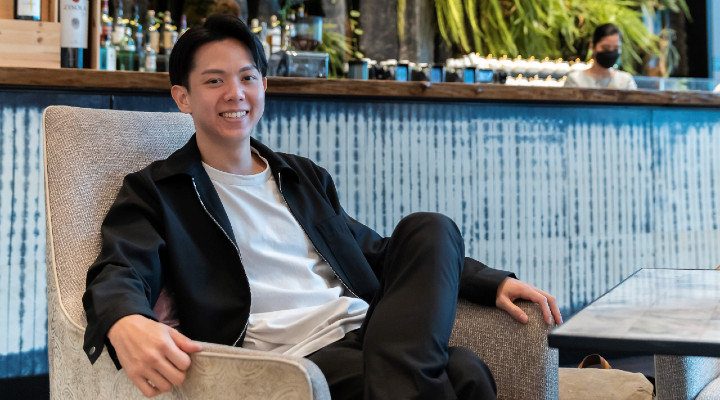Aloysius Chay started Hydragun, a direct-to-consumer wellness brand offering premium products to aid recovery and relieve aches and pain, after suffering a training injury and realising how big the market for such products was. “Whether you are young or old, active or otherwise, pain is something that everyone would experience at some point – and my team and I aim to innovate and create recovery solutions to help people feel good, get better and live their best lives,” he told Inside
ide Retail.
As Hydragun continues to expand globally, Chay said that Amazon presents a unique opportunity to directly reach a wide base of customers. He said the platform will be key in helping Hydragun achieve its goal of reaching 1 million households by 2025.
Recently, Hydragun was selected to participate in Amazon Singapore’s “Launchpad” program for boosting cross-border brands.
Expanding reach
Since launching in Singapore in 2020, Hydragun is now expanding into markets that are more developed in terms of the fitness, health and wellness category, namely Hong Kong, South Korea and Australia.
Consumers in each country have different preferences when it comes purchasing from marketplaces instead of direct-to-consumer websites.
“We localise our assets and content as much as possible. We also get local media coverage and key opinion leaders too. We’ve seen an uplift in conversions when using personalised content for marketing purposes and it’s definitely important for higher ticket products like ours,” he added.
Chay said that the marketplace for massage guns has reached maturity in many parts of the world, including the Asia Pacific market. He noted that the key differentiator for Hydragun is the design intention behind its products.
“We make use of high-quality materials such as aluminium build that the knockoff products would not use. Our second design intention is a simple, no-frills design that sets us apart from the established brands,” he explained.
He has observed that competitors have added a lot of ‘bells and whistles’ into their products, which do not necessarily provide an advantage.
Supply chain management
With varying degrees of regulatory compliances and economic environments across the APAC region, the company needs to manage its supply chain to ensure both quality and affordability.
“We maintain strong relationships between our product team and the contract manufacturers that we are working with. They are also carefully selected and usually come with many years of experience in manufacturing and supply chain management,” he elaborated.
Chay said that the brand is starting to benefit from the ‘economies of scale’ that come with working with larger contract manufacturers, as they have their own trusted suppliers with the best prices in terms of raw materials.
Niche tie-ups
Hydragun has engaged in a number of smaller retail partnerships, such as consignment deals in bricks-and-mortar stores and roadshows, to gain more visibility and increase touch points within the APAC marketplace.
“We are on e-commerce platforms such as Amazon, Lazada, Shopee, Coupang and Naver. Many consumers prefer to shop on marketplaces rather than direct-to-consumer websites, so being on them helps in conversions as well,” Chay said.
According to him, broader expansion offline will only make sense once it achieves a certain volume of sales online.
“Our main platforms are through paid socials such as Facebook, Instagram and Tiktok. This is an important strategy for a brand that is early in its lifecycle. Educating consumers about a brand via paid social media channels is the best way,” he added.
Lean and mean
With a growing number of consumers in the APAC market prioritising sustainable brands, players like Hydragun are being forced to consider their environmental impact.
“We are keeping our operational demands to the minimum by working with third-party logistic companies instead of running our own last-mile fulfilment. This allows for lesser wastage in resources for the ecosystem. In regards to products, many of our product packaging are recyclable despite the use of premium, studier materials,” Chay noted.
In terms of the future, he sees Southeast Asia as a fast-growing space, especially in the health and wellness niche. As most recovery technology companies are based in the Western hemisphere, Chay sees a big opportunity for the brand to dominate the local market.
“Our early inception in the APAC region will help us in creating brand awareness and equity as the market evolves. We aim to be the number one recovery tech company in the region,” he concluded.

